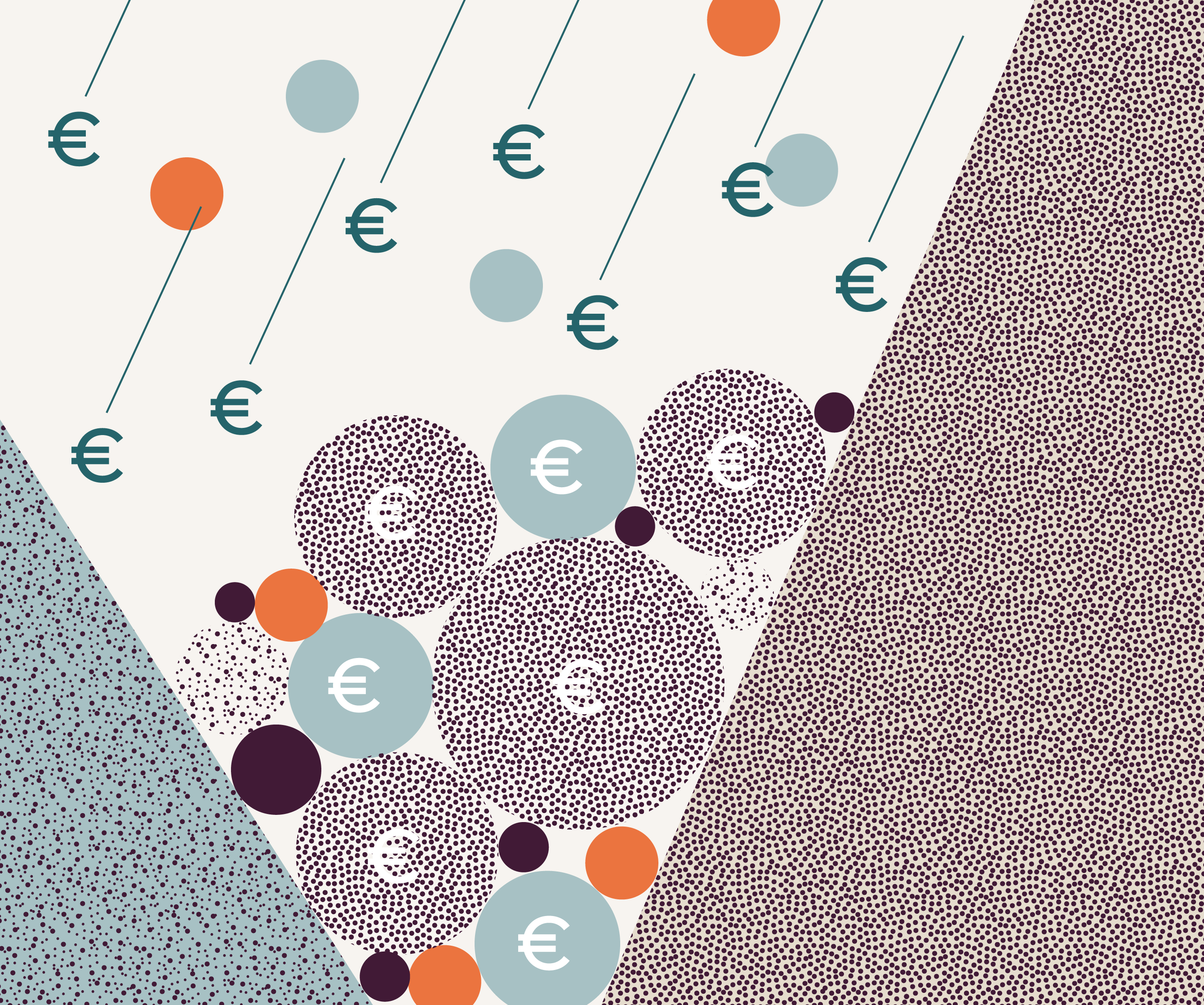INEQUALITY
Wealth Simulator: Wealth Gap in Germany Continues to Widen
Start-up capital for young people would be most likely to change wealth distribution - Wealth tax less effective - New interactive calculator enables comparison of important instruments for the first time - Interactive tool on new website - Launch on Friday
BY
FORUM NEW ECONOMYPUBLISHED
10. NOVEMBER 2023
Berlin, 9 November 2023. The concentration of wealth at the top of the wealthy will increase significantly again in the coming years without political intervention. According to simulation calculations, the share of the richest ten per cent of Germans in total wealth would rise from just over 60 per cent recently to around 67 per cent by 2027. This is the result of estimates based on a new wealth simulator developed by a group of scientists led by Timm Bönke and Charlotte Bartels from DIW Berlin together with the Forum New Economy.
The wealth simulator, which the Forum New Economy presented on Friday, makes it possible for the first time to determine the effects of different measures on the actual distribution of wealth in Germany. The calculator, which can be used interactively via a website, also makes it easier to assess whether and to what extent instruments such as seed capital or a wealth or inheritance tax could stop this trend.
According to the simulation, the distribution of wealth would be most strongly influenced if every 20-year-old were paid a starting capital (basic inheritance). The money could be used for specific purposes such as retirement provision or education. From a payout of 20,000 euros each, the share of the lower half of the population in total wealth would already be noticeably higher after ten years than would be the case without the payout – although the percentage share would still remain relatively low at 3 per cent. At 61 per cent, the share of the richest 10 per cent would be significantly lower from a starting capital of 60,000 euros than without the payment. With a starting capital of 100,000 euros, the share would even fall to 57 per cent – instead of rising to 67 per cent. The share of the lower half of the population would be four percentage points higher than would otherwise be the case. A starting capital of 10,000 euros would cost the state an average of 8.5 billion euros per year. If every 20-year-old were given a capital of 100,000 euros for retirement planning, education or the acquisition of property assets, this would amount to a good 85 billion euros per year.
According to the simulator, a wealth tax would generate additional revenue. However, a tax rate of one or two per cent would not noticeably slow down the increase in wealth inequality over ten years. From a rate of 2 per cent, the share of the richest would decrease slightly, but the share of the lower half would not change. An increase in inheritance tax under current law would have no noticeable effect on the actual distribution of wealth across the entire range of possible tax rates. One of the reasons given by the researchers for this is that only 30 per cent of Germans ever receive an inheritance or gift in the course of their lives. According to additional test simulations, significant effects would only arise after a period of 40 years. At a rate of 30 per cent, the annual income would be 3.6 billion euros. The simulations did not take into account the effects of abolishing exemptions for inheritances of company assets.
“Taking something away from a few people’s inheritance later in life does little to reduce wealth inequality,” said Charlotte Bartels. “Precisely because wealth is so highly concentrated in Germany, inequality can only be noticeably reduced if those who have nothing are given help to build up their wealth,” she said.
The Forum New Economy’s wealth simulator was developed in a multi-year project led by Timm Bönke and Charlotte Bartels in consultation with leading inequality experts. The data basis for the micro-simulation model are the results of surveys of households conducted by the Socio-Economic Panel at DIW Berlin. The project was funded by the Robert Bosch Stiftung.
“Wealth inequality is high in Germany, too high in the eyes of many citizens,” said Ellen Ehmke, Senior Expert on Inequality at the Foundation. “However, it is not easy for political decision-makers to find out which measures are suitable for reducing wealth inequality. The wealth simulator now provides initial answers and thus new material for the deadlocked debate.”
The Forum New Economy’s wealth simulator will be presented at a major event on Friday and discussed by BMWK chief economist Elga Bartsch, CDU politician Mario Czaja, former SPD leader Norbert Walter-Borjans and former Left Party MP Fabio de Masi, among others. At the same time, the simulator will be available as an interactive tool on the Forum’s new website on inequality for all. The next stages of the project will include the development of a simulator that allows users to estimate the impact of various measures on their own position in the distribution of wealth.
